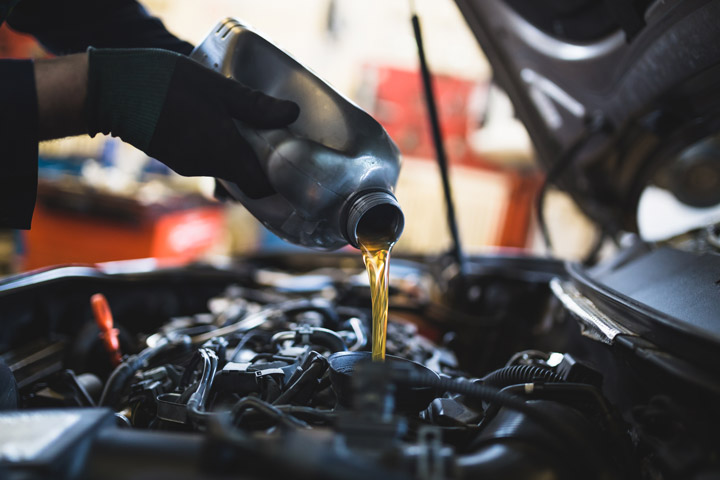Featured

[/image]
Normal engine tune-ups are vital for preserving your automobile's efficiency, boosting gas performance, and extending its life expectancy. Whether you're an experienced vehicle owner or a beginner, understanding the key aspects of an engine tune-up can help you maintain your cars and truck running smoothly for years. Here are some crucial tips to direct you through the procedure.
- Change the Flicker Plugs. Spark plugs are tiny yet magnificent components that play an important role in igniting the fuel-air mix in your engine. In time, they can use out or end up being fouled, resulting in bad engine efficiency, lowered gas performance, and tough starts.
Throughout a tune-up, examine your ignition system for wear and replace them as essential. For the majority of automobiles, ignition system ought to be changed every 30,000 to 100,000 miles, depending upon the type and material. Fresh ignition system ensure effective combustion and smoother engine operation.
- Check and Change the Air Filter. The air filter is your engine's first line of protection against dirt, debris, and various other pollutants. A blocked or unclean air filter can limit airflow, causing your engine to function harder and eat even more fuel.
Check your air filter during a tune-up and change it if it's filthy or past its suggested service interval. A clean air filter enhances engine effectiveness and improves fuel economic climate.
- Inspect the Fuel System. Gradually, your fuel system can build up dirt and carbon down payments, lowering engine performance and gas effectiveness. Cleansing the fuel injectors and gas lines during a tune-up assists maintain correct gas distribution and burning.
You can use a gas system cleaner or have an expert mechanic do an extra thorough cleaning. This action is especially valuable for older cars or automobiles often driven in stop-and-go web traffic.
- Evaluate the Belts and Hoses. Belts and hose pipes are vital for numerous engine functions, such as running the generator, water pump, and a/c. Throughout a tune-up, look for fractures, fraying, or indicators of endure these components.
Replace any type of damaged belts and hose pipes to avoid potential break downs. A damaged belt or leaking hose pipe can bring about engine getting too hot or loss of power, so attending to these issues without delay is important.
- Change the Engine Oil and Oil Filter. Engine oil is important for oiling relocating parts, lowering rubbing, and managing engine temperature level. Gradually, oil comes to be polluted and sheds its effectiveness.
As part of a tune-up, replace the engine oil and oil filter. Make use of the sort of oil advised by your car's producer and stay with the recommended change intervals. Clean oil keeps your engine running efficiently and prevents premature wear.
- Test the Battery and Charging System. A healthy and balanced battery is vital for beginning your vehicle and powering its electric systems. During a tune-up, examine the battery's voltage and examine the terminals for corrosion. Clean the terminals if required and make certain a safe connection.
Furthermore, test the alternator and charging system to ensure your battery remains charged during operation. If your battery is weak or old, consider replacing it to stay clear of unexpected breakdowns.
- Flush and Replenish the Coolant. The cooling system controls your engine's temperature, preventing it from overheating. Old or polluted coolant can lose its effectiveness, causing possible engine damages.
Throughout a tune-up, flush the old coolant and replace it with a fresh combination. Additionally, evaluate the radiator, thermostat, and hoses for leakages or damage. Keeping the cooling system in great problem ensures your engine operates at the ideal temperature level.

- Address Caution Lights and Unusual Signs And Symptoms. Modern cars are furnished with diagnostic systems that inform you to prospective issues with control panel warning lights. If your check engine light or any other advising signs get on, resolve them throughout your tune-up.
Furthermore, focus on uncommon signs and symptoms such as weird noises, harsh idling, or decreased fuel efficiency. An expert technician can identify and solve these troubles during the tune-up process.
- Do Not Forget the Exhaust System. Your automobile's exhaust system eliminates hazardous gases from the engine and ensures appropriate exhausts. Check the exhaust system for leaks, rust, or damages during a tune-up. A malfunctioning exhaust system can impact engine performance and cause environmental and safety concerns.
- Usage High-Quality Components and Fluids. When replacing components or topping off liquids throughout a tune-up, always decide for high-quality items that fulfill your vehicle's requirements. Utilizing poor components or wrong fluids can negatively affect your engine's efficiency and longevity.
Verdict: Routine Tune-Ups Are Key to Engine Health And Wellness. Making the effort to tune up your engine ensures it operates successfully, conserves fuel, and reduces the risk of break downs. Whether you perform these jobs yourself or depend on a relied on technician, normal tune-ups are an investment in your car's integrity and durability. Comply with these ideas, and you'll enjoy a smoother, a lot more dependable adventure for several years to find.
Latest Posts
Discover Reduce Expenses on Car Maintenance with Montclare Auto Repair’s Limited-Time Deals
Check Out Montclare Auto Repair’s Highly Requested Services and Why Drivers Choose Them
Learn About Brake Repair & More: Complete Auto Care Solutions from Montclare Auto Repair
More
Latest Posts
Discover Reduce Expenses on Car Maintenance with Montclare Auto Repair’s Limited-Time Deals
Check Out Montclare Auto Repair’s Highly Requested Services and Why Drivers Choose Them
Learn About Brake Repair & More: Complete Auto Care Solutions from Montclare Auto Repair